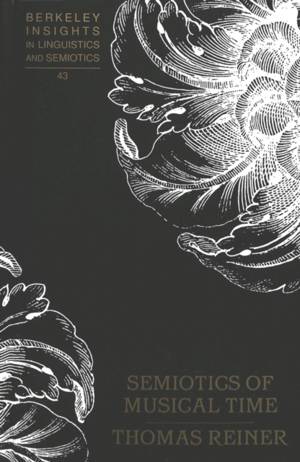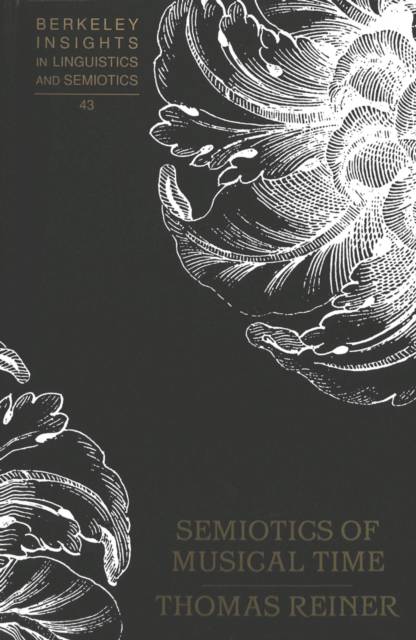
- Afhalen na 1 uur in een winkel met voorraad
- Gratis thuislevering in België vanaf € 30
- Ruim aanbod met 7 miljoen producten
- Afhalen na 1 uur in een winkel met voorraad
- Gratis thuislevering in België vanaf € 30
- Ruim aanbod met 7 miljoen producten
Zoeken
Omschrijving
Semiotics of Musical Time investigates the link between musical time and the world of signs and symbols. It examines the extent to which musical time is a product of signs, sign systems, and sign-oriented behavior. Sound is discussed as a potential sign of time and of musical time. Inherent and recognizable temporal features are identified in a number of musical works. Time as a compositional concern is examined in the case of Igor Stravinsky and Karlheinz Stockhausen. A principal distinction between hearing associated with perception and listening associated with cognition provides the basis for the proposition that musical time is both unheard and imperceptible. The role of concepts, and their designations, is investigated to demonstrate that consciousness of musical time involves semiotic processes.
Specificaties
Betrokkenen
- Auteur(s):
- Uitgeverij:
Inhoud
- Aantal bladzijden:
- 252
- Taal:
- Engels
- Reeks:
- Reeksnummer:
- nr. 43
Eigenschappen
- Productcode (EAN):
- 9780820445250
- Verschijningsdatum:
- 18/07/2000
- Uitvoering:
- Hardcover
- Formaat:
- Genaaid
- Afmetingen:
- 152 mm x 229 mm
- Gewicht:
- 526 g

Alleen bij Standaard Boekhandel
+ 310 punten op je klantenkaart van Standaard Boekhandel
Beoordelingen
We publiceren alleen reviews die voldoen aan de voorwaarden voor reviews. Bekijk onze voorwaarden voor reviews.











